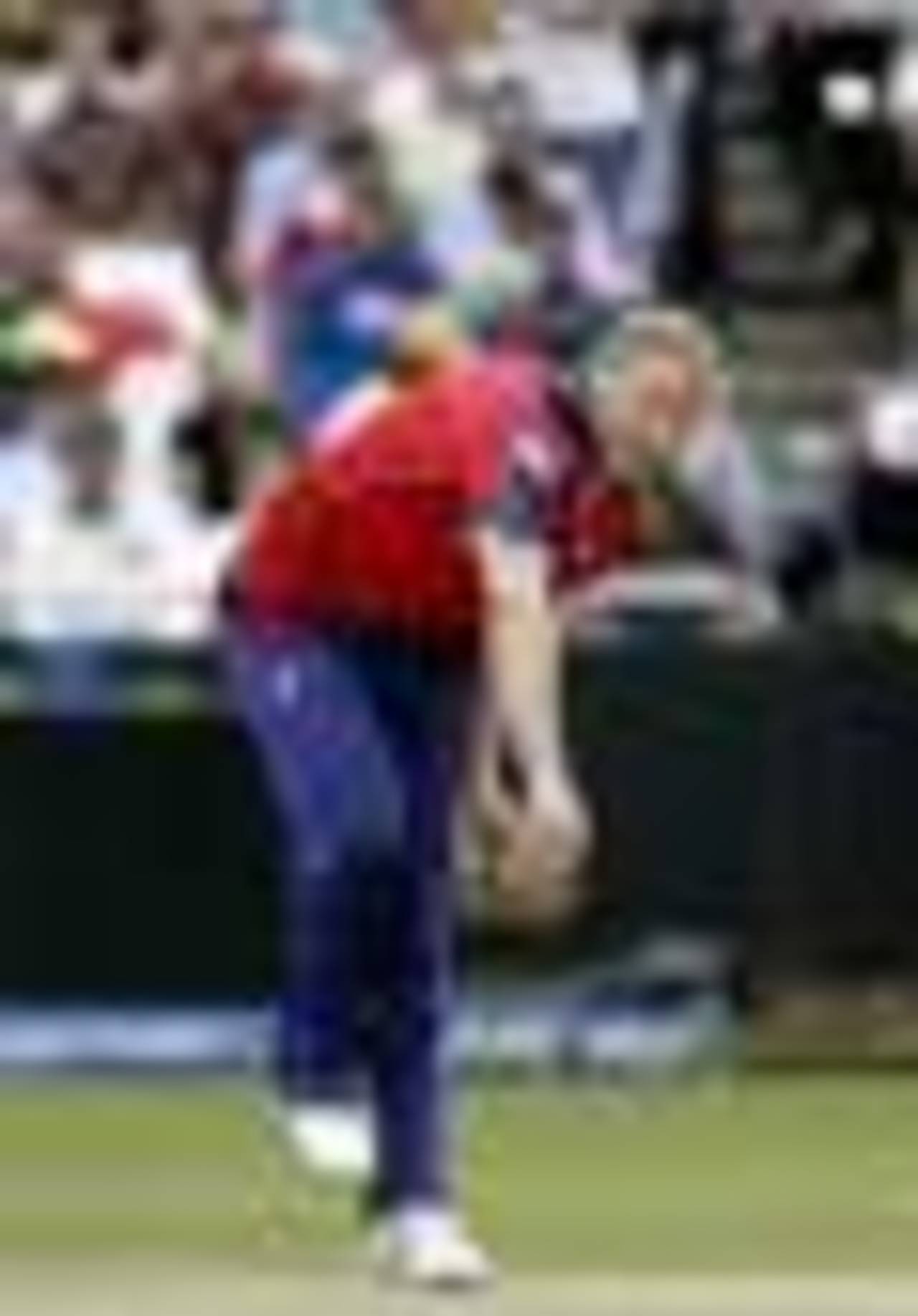Reality bites for Flintoff
Two years ago, when comparisons with Ian Botham were all the rage, most Poms were convinced that Our Fred’s career graph would maintain its inverse relationship to that of His Beefiness
Rob Steen
25-Feb-2013

Getty Images
And then there were four. Of the England XI that defeated Australia at Trent Bridge to take a decisive 2-1 lead in the 2005 Ashes series, only Michael Vaughan, Ian Bell, Kevin Pietersen and Matthew Hoggard are now likely to figure in the forthcoming Test tour of Sri Lanka. And so the curse continues. Who would have thought that those fluffy white clouds over Nottingham would contain such a grisly grey lining?
True, the team management have yet to formally announce that Andrew Flintoff’s persistent ankle problems will keep him off the plane, but his withdrawal from next month’s one-day series suggests this may only be a matter of time. The sensible option would be to give him the winter off in the hope that he can return against South Africa next summer with all cylinders ablaze, but even that may be overly optimistic. To watch him grimace, groan and hoick his way through the Twenty20 was as pitiful as it was painful.
Two years ago, when comparisons with Ian Botham were all the rage, most Poms were convinced that Our Fred’s career graph would maintain its inverse relationship to that of His Beefiness. Posterity, or so it seemed, would enshrine him as the superior force.
Botham reached the pot at the end of his rainbow with almost indecent haste then spent the last six years of his international career hamstrung by back trouble and trading on reputation and psychological muscle, with ever-diminishing returns. After a slow-motion overture, Flintoff’s development was convincing enough to persuade us that, if he was unlikely to net the best part of 400 Test wickets at 28, as his predecessor did, the odds were firmly on him comfortably outstripping Botham’s batting average of 33 and easily outdoing him as a limited-overs force. As things stand, however, his Test averages are 32 with bat and ball, and all the signs are that his final figures will deteriorate rather than improve. If, that is, he ever plays another five-dayer.
What the pair have in common is the true allrounder’s stubborn refusal to accept the word of their bodies and prolong their productivity by focusing on one of that mighty bow’s mellifluous strings. Had Botham’s ego allowed him to put all his eggs in his batting basket, it does not seem fanciful to suggest that the last five years of his Test career would have produced a few more centuries. Or even one. Instead, he declined alarmingly on both fronts. Flintoff’s bowling remains highly effective – albeit rather more conspicuously in the one-day fray – but it is now 32 innings since he made the most recent of his five Test tons. Like Botham, his batting has recently suffered from a lack of concentration and discipline, a surfeit of recklessness and a reluctance to adapt, in technical terms or to the collective need. In short, he seems to have reverted to the unthinking cricketer who once drove county and agent to hair-tearing fury.
In fairness, this may be due less to an obstinate belief in his own apparent superpowers (Botham’s Achilles heel-in-chief) than a symptom of depression. Between 2003 and 2005 he soared to the very summit of cricketing attainment, as lethal with bat as ball, a matchwinner for all seasons, a folk hero without contemporary parallel in English sport. When his body rebelled, it was as if he had been marooned in a cave with an Everest’s worth of greenest kryptonite. Were the mediocrity and brevity of his captaincy unconnected? One seriously doubts it.
So what now? Some have proposed that he train his sights solely on the abbreviated game, the better to protect and preserve. It might be sensible but it would also be a terrible pity. Besides, can you imagine him being content to operate exclusively on what most if not all cricketers regard as the lesser stages, to give up, in effect, the theatre for an endless stream of Hollywood potboilers? I can’t.
One can only pray, for Flintoff, for English cricket and for the game as a whole, that the surgeons can work the requisite wonders and restore him to full working order. Whether they do so or not, let’s hope he takes a good look in the mirror over the coming months, learns from Botham’s errors, acknowledges that Garry Sobers was the exception rather than the norm, accepts his vincibility and sets greater store by the runs column than the wickets.
Rob Steen is a sportswriter and senior lecturer in sports journalism at the University of Brighton